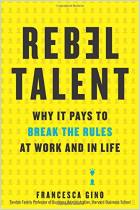Join getAbstract to access the summary!

Join getAbstract to access the summary!
David Courpasson and Jean-Claude Thoenig
When Managers Rebel
Palgrave Macmillan, 2010
What's inside?
Thought-provoking analysis of why managers sometimes choose rebellion over conformity
Recommendation
This is not a book about workers rising up against abusive employers with pitchforks and torches. It’s about highly respected, dedicated young managers who like or even love their jobs, but who rebel when they feel their employers have driven them to the breaking point. Organizational sociologists David Courpasson and Jean-Claude Thoenig explain how managers reach such pivot points, and what trouble ensues when they do. In their view, such apparent trouble generally amounts to a constructive challenge from managers to their superiors that says, “I object to what you’re doing, but I’d like to suggest how to fix it.” The book’s real-life case studies (the names have been changed to protect the innocent) show how managers in varying situations rebelled in different ways. Although the authors offer little guidance on how to realize the positive outcomes of these rebellion scenarios in your own workplace, getAbstract thinks this book will help middle managers better understand how they can solve problems by embracing constructive resistance and rebellion – and yet escape career death.
Summary
About the Authors
Consultants David Courpasson and Jean-Claude Thoenig are organizational sociologists. Courpasson, a professor at the EMLYON Business School, edits the research publication Organization Studies. Thoenig is director emeritus of research at University Paris-Dauphine.

















Comment on this summary